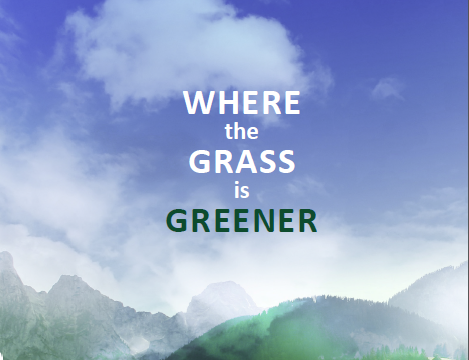On October 21th, the Cornwall Alliance premiered a new documentary film, Where the Grass is Greener: Biblical Stewardship vs. Climate Alarmism, at the Heritage Foundation. The Cornwall Alliance is a network of theologians, scientists, economists, and other scholars committed to promoting stewardship of the earth from a Christian perspective. The film premiere was hosted by Becky Norton Dunlap, vice president of the Heritage Foundation.
After the film viewing, a panel discussion was held between scholars Jay Richards, David Kreutzer, Rev. Charles A. Clough, and E. Calvin Beisner. Beisner opened the discussion by stating the purpose of the film as attempting to integrate theology, philosophy, ethics, worldview, physical sciences, social sciences, politics, and economics. He called climate change “probably the most multidisciplinary and interdisciplinary issue.”
Dr. Jay Richards of the Institute of Faith, Work & Economics as well as the Discovery Institute, and author of intelligent design advocacy work The Privileged Planet, was first on the panel to speak. After admitting that he is a philosopher rather than a scientist, Richards expressed his interest in the philosophical and theological implications of the theory of Darwinian evolution.
As Richards sees it, there are three main views of the world to which much of the Western world subscribe. The first is the biocentric view, according to which all human impact on the globe is unsalutary — essentially, the world is better off without humans. The second view is human-centric, which evaluates human policy exclusively with respect to human well-being. Richards concludes that the human-centric view is not adequately in line with the Judeo-Christian tradition, which commands humans to keep a place for the stewardship of the earth in their lives. The third view, which Richards sees as the offspring of the Judeo-Christian traditions, he calls hierarchy of being. The hierarchy of being designates human beings a particular vocation to care for the earth, which has been given them as a home and resource.
Dr. David Kreutzer of the Heritage Foundation, who specializes in public choice economics, also had concerns about climate change hysteria. Kreutzer, a steadfast critic of Washington, praised the documentary for accurately explaining his skepticism that the movement is led by those with agendas for their own pet projects.
“If the solution to the supposed global warming problem required cutting spending, lowering taxes and getting rid of regulations, do you think we would have the same type of people championing climate change?” Kreutzer demanded. “I think it would flip 180.”
Rev. Charles A Clough. President of Biblical Framework Ministries, ordained minister, meteorologist, and retired U.S. Army Aberdeen Test Center Atmospheric Effect Team Chief also had skeptical thoughts given his experience working for the army.
“Research has become central. It also becomes more formalized, complex, costly, and a steadily increasing share is conducted for, by, or at the direction of the federal government. A government contract becomes virtually a substitute for intellectual curiosity,” Clough cautioned.
The Heritage Foundation and the Cornwall Alliance are optimistic that Where the Grass is Greener can be used as a promotional tool for the environmental ethics they endorse.
“We have a particular audience in mind,” said Beisner. “Evangelical Christians, then more to a broader range of Christians, and finally to the rest of the public.”





Comment by E. Calvin Beisner on November 4, 2015 at 3:58 pm
Thanks for the clear and objective reporting here, Muriel! For those interested, the documentary video is available at http://www.WheretheGrassisGreenertheMovie.com, and we have a related petition at http://www.CornwallAlliance.org/EnergyEmpowersthePoor.